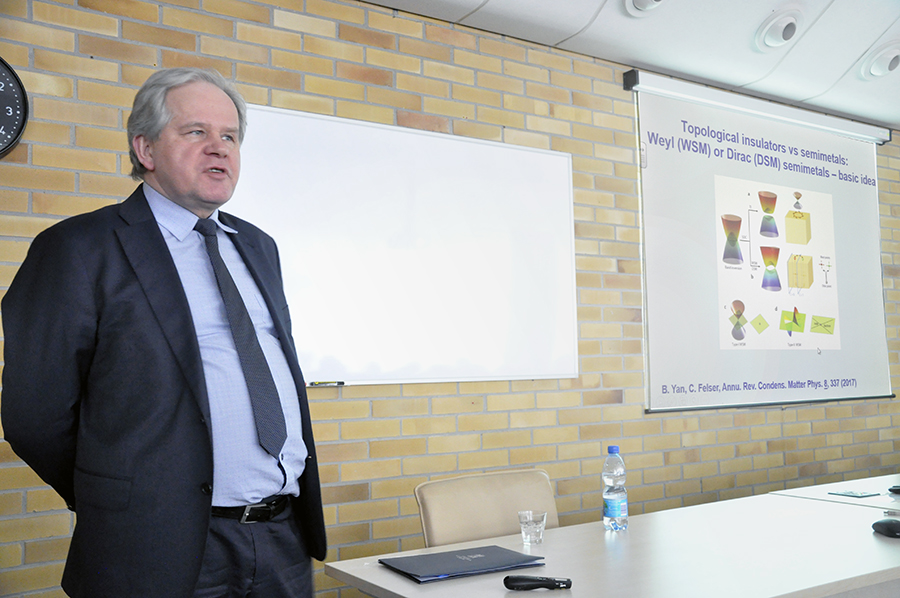
- This event has passed.
Topological semiconductors
February 26 , 13:00 – 14:00
Speaker: Prof. Tomasz Story
Affiliation: Institute of Physics, Polish Academy of Sciences, Warsaw, Poland
International Research Centre MagTop, Institute of Physics PAS, Warsaw, Poland
The most important semiconductors such as silicon (Si), gallium arsenide (GaAs) or gallium nitride (GaN) – world-wide applied in contemporary electronics and optoelectronics – are considered as topologically trivial materials. However, several important families of semiconductors known for infrared or thermoelectric applications, such as mercury, bismuth, antimony or tin chalcogenides (HgTe, Bi2Se3, Bi2Te3, Sb2Te3, SnTe) constitute materials platform for experimental and theoretical development of new condensed matter systems – topological materials (topological insulators, topological crystalline insulators and topological Weyl or Dirac semimetals). These materials are unique surface (2D) or edge (1D) conductors with unusual properties driven by strong relativistic (spin-orbital) effects. They exhibit inverted ordering of valence and conduction bands in the bulk but metallic in-gap states with linear (Dirac-like) electron energy dispersion as well strong spin-momentum locking for the surface states.
In the lecture, it will be shown how unique possibilities of controlling electronic structure as well as electric, optical or magnetic properties of semiconductors can be used to experimentally study the surface or edge topological states by angle- and spin-resolved photoemission, scanning tunneling spectroscopy and magneto-transport or magneto-optical effects. New concepts will be discussed, e.g. higher order topological insulators, topological crystal defects or new physical regimes expected at the interface between ferromagnets, antiferromagnets or superconductors and topological matter. Experimental realization of these ideas requires new topological materials in the form of recently mastered layered heterostructures or nanowires, as well as new theoretical developments beyond standard band structure theory.
Seminar language: English
Chairman: Ireneusz Weymann

Theme by Themesmob
